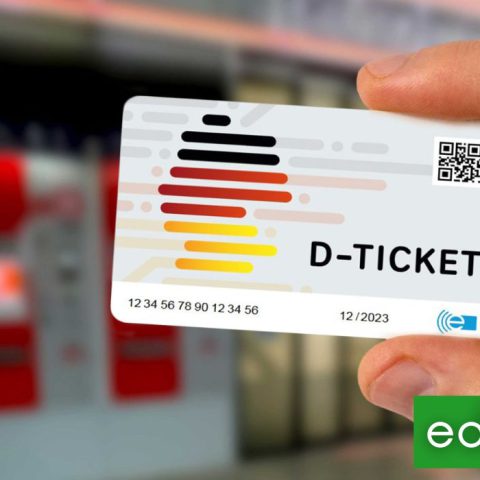On Deutschland-Ticket results and impact on mobility habits
In the first full month of the nationwide Deutschland-Ticket, around 10 million customers took advantage of the offer (7 million subscriptions were sold in the first 10 days after it became valid: Deutsche Bahn website went crashed). Half of them, approximately 5 million passengers, switched from existing season tickets, while 4.3 million passengers were new […]

In the first full month of the nationwide Deutschland-Ticket, around 10 million customers took advantage of the offer (7 million subscriptions were sold in the first 10 days after it became valid: Deutsche Bahn website went crashed).
Half of them, approximately 5 million passengers, switched from existing season tickets, while 4.3 million passengers were new subscribers who previously used single tickets or season tickets without a subscription. Additionally, around 700,000 people became new customers who had not used public transport before. These figures were made public on 31st May by the VDV.
Deutschland-Ticket and mobility behaviors
The 49€ ticket is the prosecution of the 9€ ticket issued in summer 2022. A offer that was bought by over 52 million people: the reduction in car use has cut carbon dioxide emissions by 1.8 million tonnes, according to VDV. Researchers at the University of Potsdam quoted by the World Economic Forum “found that air pollution levels fell by up to 7% in response to the introduction of the low-cost ticket”.
But what about perceptions and car-related behavior? A survey by the market research institute infas and TomTom about the familiarity of the Deutschland-Ticket among German people found that “almost two-thirds of the respondents (62 per cent) know about the ticket, among the under-30s it is even 73 per cent”. More interestingly, according to the same study, almost 40 percent of respondents who currently possess or plan to purchase a Deutschland-Ticket expect reducing their car usage. A quarter of them intend to maintain their current car use but increase their reliance on public transportation. Meanwhile, 29 percent do not foresee any immediate changes in their mobility habits. Aside from cost considerations, these trends underscore the need for “substantial improvements in public transport services” to encourage a shift in behavior.
Estimates quoted by the Tagesschau suggest that public transport could see an increase of around five percent in passenger numbers. However, critics argue that while the ticket is a good initiative, it was introduced at the wrong time. They suggest that improving and expanding public transport services should have been prioritized before subsidizing tickets.
A topic highlighted also by VDV’s President Ingo Wortmann: “The actors involved are aware that the Deutschland-Ticket alone is not enough for many people who do not find adequate bus and rail services locally to be able to switch to public transport in the long term. The expansion and modernisation of the entire public transport system must remain at the top of the political agenda. In addition to the Deutschland-Ticket, we also need the Deutschland-offer in public transport”.
“Experts and professionals from the industry name improving quality of service (88 %), punctuality (80 %), coverage, and accessibility (80%) as most acute challenges”, stresses on the same topic PTV Group CEO Christian Ulrich Haas.
Among the pros, the clarity in fares. A issue underlined by PwC Germany in a recent survey (already mentioned in Next Stop of the 18th March). A significant portion of respondents (54%) expressed confusion or uncertainty regarding the appropriate ticket to use for their intended public transport journey. The situation is even more challenging for new customers, including tourists, with 60% reporting difficulties in navigating the fare structures when using public transport in unfamiliar regions. The survey findings indicate that up to 40% of respondents would increase their usage of public transport if the variety of available tickets were more clearly defined and understandable.








